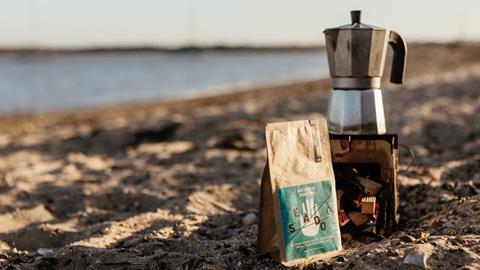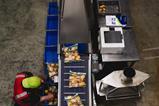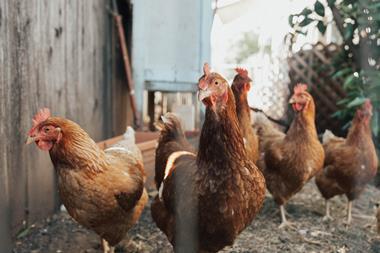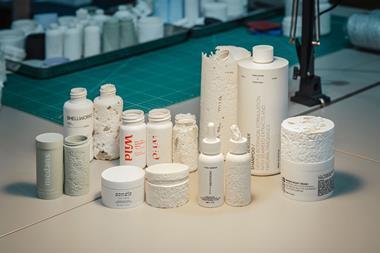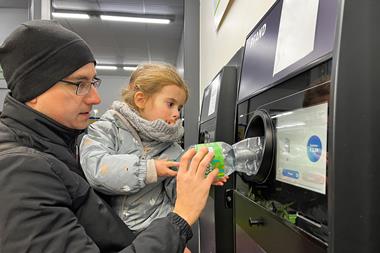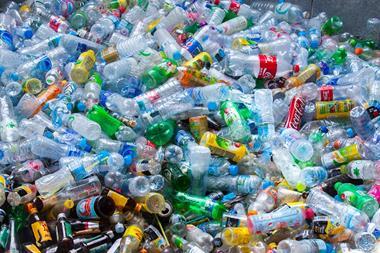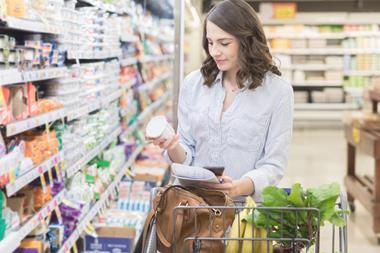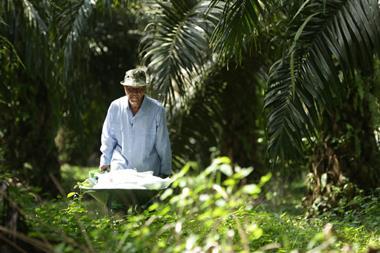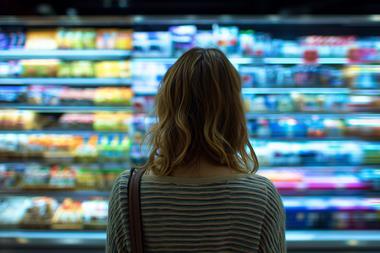Despite the current cost-of-living crisis, UK consumers and retailers are still focused on sustainability. In Wales, businesses are reaping the rewards of government support on the issue with an increasing number of award-winning brands.
Despite a tumultuous climate in the UK over the past few months, with soaring food inflation and the cost-of-living crisis beginning to pinch, environmental and sustainability issues are still to the forefront of consumers’ minds.
A plethora of FMCG companies and brands in the grocery industry are still actively working towards the government’s targets of net zero by 2050, with many seeking to become carbon-neutral over the next few years. These efforts clearly reflect the will exercised by consumers to choose brands that they believe live up to their sustainability credentials, with increasing scrutiny of ingredients provenance, production methods (organic, Fairtrade) and miles travelled, as well as packaging used.
However, as Mintel points out in its 2022 Sustainability Barometer, the priority has shifted from plastic pollution and waste towards climate change, as water and food shortages, extreme weather events and the war in Ukraine make more consumers familiar with these “uncomfortable realities”.
Interestingly, one of the new questions asked of respondents to Mintel’s report this year on sustainable behaviour is ‘Bought products certified to be less harmful to the environment’, with 25% of respondents classing that as important, which points to a growing interest in supporting companies that prioritise sustainability as a key feature in their production methods.
Ambition for sustainable supply chains
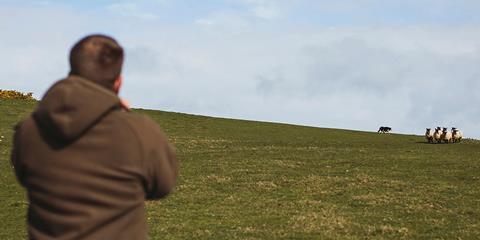
In Wales, the strategic vision of the Welsh Government is to achieve a global reputation for excellence by building a strong and vibrant food and drink industry with sustainable supply chains. This ambition includes responding to an increased focus by consumers on purchasing products with minimal environmental impact and ethically produced.
In a survey from Deloitte for the 12 months to March 2021, one in three consumers claimed to have stopped purchasing certain brands or products because they had ethical or sustainability related concerns about them, reveals Food Skills Cymru, which adds: “It seems likely that, in the long run, those retailers and manufacturers who can demonstrate business responsibility through sustainable improvements that prioritise environmental, social, health and quality values will be most favoured by consumers.”
The Welsh Government, with its triple helix approach of government, business and academia, is therefore supporting Welsh food and drink businesses on their sustainability journey via a number of initiatives. These include:
● A Sustainability Cluster to support and develop sustainable business practices across Wales’ agri-food industry, delivered by using the triple helix approach of government, industry and academia working hand in hand to tackle common industry problems. This hub provides intelligence to businesses, develops networks and industry expertise to help Welsh businesses on the road to their sustainability ambitions.
● A B-Corp accreditation grant, reimbursing applicants who strive to achieve B-Corp with up to 100% of their first-year fees. Businesses that have completed the sustainability training course or have started training delivered via Food Skills Cymru are eligible to submit a proposal to conduct feasibility studies/surveys to improve the sustainability of their businesses.
● Cywain, a business-led programme dedicated to supporting the early development of new and existing micro-business through to small and medium enterprises, focusing on maximising opportunities and growth potential. Cywain’s Sustainability Challenge is a new series of tailored and online webinars to equip ambitious and food and drink businesses with the practical know-how to take advantage of the significant and growing market demand for sustainable products and brands.
● Advanced Manufacturing Research Centre (AMRC) in Flintshire is part of a network of research and innovation centres helping local manufacturers improve productivity, performance and quality. The Centre helps businesses develop sustainable concepts by using low-carbon technologies that ultimately make manufacturing greener and cleaner.
Award-winning businesses
That the Welsh Government’s actions are falling on fertile ground is demonstrated in the awards success recently achieved by those Welsh companies that are making sustainable practices inherent in their activity and resulting products.
Fourteen companies from Wales that are part of its Sustainability Cluster achieved three- two- or one-star accolades in this year’s Great Taste Awards.
And in total, 182 Welsh products, ranging from small independent artisan producers to large scale distributors, were successful at the 2022 awards, with 129 products achieving 1-star, 46 receiving 2-stars and 7 earning the gold stamp of approval with 3-stars – namely:
● Bay Coffee Roasters – Indonesian Sumatran Fairtrade Organic
● Mario’s Luxury Dairy Ice Cream – Espresso Martini Ice Cream
● Parva Spices – Sambal Hijau
● Pembrokeshire Lamb Ltd – Hogget Mince
● Pembrokeshire Sea Salt Co – Sea Salt with Saffron
● Tasty Bites @ Ionas Kitchen – Curried Goat Patti
● The Wye Valley Meadery – Hive Mind: Big Smoke – Smoked Honey Porter
Case study: Pembrokeshire Lamb
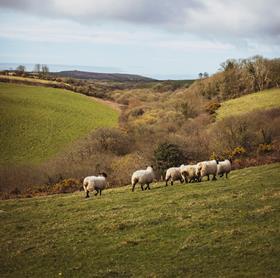
As a brand, Pembrokeshire Lamb has seen rapid development from its starting point in 2019. The company, which is a 3-star Great Taste winner this year and a 3-star Great Taste and Golden Fork winner last year, is run by husband and wife team Steven and Kara Lewis, both of whom started out on family farms. Most of the business’ sales are online and the company has embraced several sustainability initiatives, including introducing clovers to its grassy meadows to benefit the lambs’ diet and help take nitrogen out of the atmosphere, as well as investing in natural wool packaging to send its products out to customers.
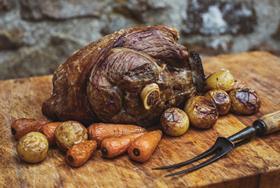
Kara explains that the company has received lots of support from the Welsh Government in the form of training, including help with HACCPs. Pembrokeshire Lamb is part of the government’s Sustainability Cluster, which aids networking, knowledge transfer and ensures they are kept up to date with sustainability news. Some of the training enabled the development of both an environmental and a social action plan. Supported by the involvement of Cywain, they have been able to tailor and transfer their goals and messages to a wider audience, says Kara. In addition, it is applying for B Corp certification and has already completed the initial impact assessment. “We’d like to be B Corp certified in order to get more recognition,” she adds. “It’s one thing saying that your business is environmentally friendly, but B Corp certification backs this up.”
Case study: Bay Coffee Roasters
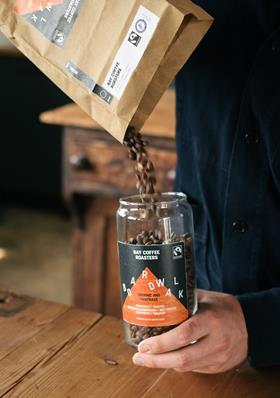
This year’s Great Taste Golden Fork winner, Bay Coffee Roasters, is run by Duncan Gray with his wife Jules, and the company picked up three stars for its Indonesian Sumatran Fairtrade Organic coffee.
The coffee is among a broad variety of styles, Fairtrade and organically sourced where possible, at the company’s roastery in Tanygroes, Wales, reveals Duncan. While most roasters use gas, the company has invested in equipment that runs on 100% renewable electricity, traceable back to its solar and wind power sources. From a smallholding farming background in west Wales, the pair started roasting coffee about seven years ago and are developing the business with ethical and environmental decisions firmly in focus. “We are always trying to evaluate the best route to go down and not just make kneejerk decisions,” says Duncan.
While it is not always possible to source Fairtrade and organic beans, he says, the company tries to focus on buying from other schemes that provide some sort of benefit back to the communities from where the product is sourced. “We have to be happy with the ethics of the importer and ensure they are going in a positive direction,” he says. “The important aspect of Fairtrade is that it makes sure a group of people are being looked after.”
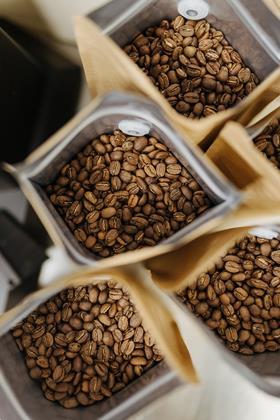
The company is also working towards B Corp accreditation, although progress has been slow, but pair have “pencilled in a big chunk of time this winter” to push on with their application. “The Welsh Government has encouraged us to do this and shown us how important accreditation like this is in terms of promoting our business going forwards. It’s a good checklist for whether you are running your business in a healthy and positive manner and it’s helping us to reflect on every aspect of our activity.”
Meanwhile, winning this year’s Golden Fork has come as a very pleasant surprise to the pair. “It has had a really positive effect, not just for how people view us, but for how we view ourselves,” says Duncan. ”It’s the fifth year that we have won Great Taste awards, but to get the three-star was amazing. Then to be the only coffee company nominated for the Golden Fork – and to go on to win it – was something quite special. It has given us encouragement to keep on doing what we are doing and in the way we are doing it and has spurred us on to think about what’s next.”
To find out more about how Wales is supporting award-winning brands with their sustainability goals, contact sustainablefd@gov.wales.








